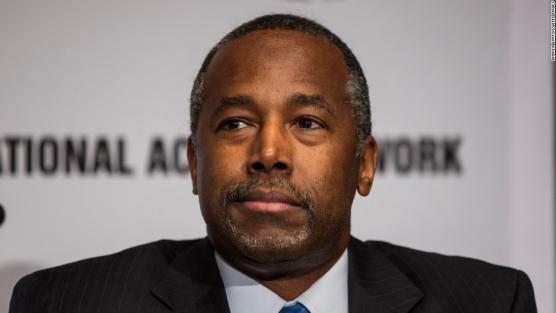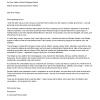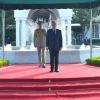Dear Dr. Carson:
As leaders of the nation’s largest veterans organizations, with more than 5 million active members, we vehemently disagree with your dangerous proposal to eliminate the Department of Veterans Affairs (VA) health care system for America’s veterans. Eliminating the VA health care system – considering all that it has done in the past and all that it could be in the future – would inevitably endanger the health and well-being of millions of wounded, injured and ill veterans, an outcome that we cannot allow to occur.
Dr. Carson, we do not question your intentions to improve the lives of those who have served; your life’s work speaks clearly to your dedication to the lives of others. Nor do we dispute your observation that VA today faces very serious problems and challenges in providing health care and benefits. Each of our organizations has criticized VA whenever it has faltered or failed, as has too often been the case in recent years. But because our primary concern is about ensuring the best possible outcomes for the men and women who served, we have also proposed thoughtful and responsible reforms that if enacted, and properly resourced, could make VA great again.
While we certainly respect your medical credentials, we are concerned that your current knowledge of the VA is both outdated and inaccurate. We recognize that you received a significant part of your medical training in the VA (as has the majority of America’s doctors); however, the VA you worked in over three decades ago is dramatically different than the VA of today or even ten years ago. The post-Vietnam VA health care system that you observed firsthand during your medical education and subsequent residency operated a system of large hospitals typically located only in major cities. That VA no longer exists. Today the VA system is an integrated, tiered network of more than 1,400 outpatient clinics, medical centers, hospitals, and clinical research facilities, affiliated with hundreds of medical schools and universities.
In reading your recent op-ed in USA Today, it appears to us that you have not been provided with complete and accurate information on how the VA health care system has evolved. Your claim that VA health care has not modernized to meet the changing needs of veterans is simply not borne out by the facts. For example, in just the past dozen years, VA has developed a national integrated system of polytrauma centers and research efforts to address the devastating traumatic injuries from the wars in Afghanistan and Iraq, particularly traumatic brain injury (TBI). Long the world leader in diagnosing and treating PTSD, VA also has now become the first and perhaps only large scale health care system to fully integrate mental health into its primary care system nationally. Over the past five years VA has also updated its model of care to integrate and support over 20,000 family caregivers of severely injured veterans, not only to allow them to receive care in their homes and reduce government spending, but also to increase the emotional support so critical for their recovery and healing.
VA’s clinical research programs have helped to improve medical diagnosis, treatment and health outcomes for the entire U.S. population. It was VA scientists who developed the original nicotine patch and proved the benefits of low dose aspirin therapy to prevent heart attacks. Closer to your own field of medicine, VA researchers demonstrated that therapy with electrodes implanted into the brain was better than medication at controlling tremors and movement problems in patients with Parkinson’s disease.
Dr. Carson, do you really think that veterans would be better off today had VA not existed, or that they would be better cared for in the future in a world without a national VA system dedicated to their unique and often complex needs?
Furthermore, your suggestion that giving veterans health savings accounts in lieu of access to a VA health care system would effectively diminish our nation’s sacred obligation to “care for him who shall have borne the battle…” It would put the onus on the veteran for finding their own health care providers, navigating through the private market-based system, determining whether it meets the standard of care they require, and dealing with the consequences if it goes awry. To suggest that disabled veterans could be sent out into the private economy with a health savings account card overlooks the fact that civilian health care providers have waiting lists of their own, that private practices often limit the number of government plan patients they accept due to low reimbursement rates, and presupposes that civilian doctors have the necessary skillsets and training to meet the unique health needs of military veterans.
Dr. Carson, as one of our nation’s preeminent medical practitioners, you are well positioned to work with us to promote needed reforms at the VA, reforms that will ensure this country keeps its promises to America’s veterans. We would welcome the opportunity to meet with you and open a dialogue about the benefits of a national health care system focused exclusively on veterans. America’s veterans have earned the right to a VA system that provides veteran-centric, high quality, accessible health care. We invite you to join with us in an effort to strengthen and reform the VA, not destroy it.
Respectfully,
Garry Augustine, Executive Director, Washington Headquarters, DAV
Robert E. Wallace, Executive Director, Veterans of Foreign Wars of the United States
Verna L. Jones, Executive Director, The American Legion
Homer S. Townsend, Jr., Executive Director, Paralyzed Veterans of America
Stewart M. Hickey, National Executive Director, AMVETS
Robert Puskar, National Commander, Military Order of the Purple Heart
Paul J. Rieckhoff, Executive Director, IAVA
VADM Norbert R. Ryan, Jr., USN (Ret), President, Military Officers Association of America
















